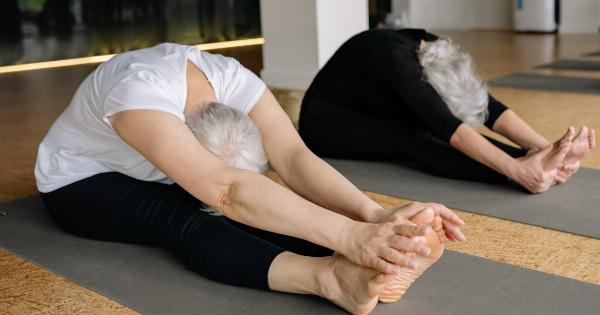Post-coital pain, also known as dyspareunia, is a condition where there is pain or discomfort after sexual intercourse. This condition affects both men and women and can be caused by several factors.
In this article, we’ll discuss the causes and remedies for post-coital pain.
Causes of post-coital pain
There are several causes of post-coital pain, and it’s important to identify the underlying cause in order to address the issue properly. Some of the common causes of post-coital pain are:.
1. Vaginal dryness
When there is insufficient lubrication during sexual intercourse, it can cause pain and discomfort. This may happen due to a lack of foreplay, certain medications, or hormonal changes in women.
2. Infections
Sexually transmitted infections like chlamydia, gonorrhea, and herpes can cause post-coital pain. These infections can irritate the tissues in the genital area and cause pain and discomfort.
3. Endometriosis
Endometriosis is a condition where the tissue that lines the uterus grows outside of it. This can cause pain during sexual intercourse and after it as well.
4. Vulvodynia
Vulvodynia is a chronic pain condition that affects the vulva, the external genital area in women. This can cause pain during or after sexual intercourse.
5. Pelvic floor dysfunction
Pelvic floor dysfunction can cause pain and discomfort during sexual intercourse and after it. It is usually caused by weakened pelvic floor muscles.
Remedies for post-coital pain
The remedies for post-coital pain depend on the underlying cause. Here are some common remedies:.
1. Lubrication
If vaginal dryness is the cause of post-coital pain, using a lubricant can help reduce the discomfort. Make sure to choose a water-based lubricant as oil-based ones can cause irritation and infections.
2. Antibiotics
If the cause of post-coital pain is an infection like chlamydia or gonorrhea, antibiotics can help treat the infection and reduce the pain.
3. Pelvic floor exercises
If pelvic floor dysfunction is causing post-coital pain, pelvic floor exercises like Kegels can help strengthen the muscles and reduce the discomfort.
4. Pain medication
If the pain is severe, over-the-counter pain medications like ibuprofen can help reduce the discomfort. However, it’s important to consult with a doctor first before taking any medication.
Prevention of post-coital pain
Preventing post-coital pain also depends on the underlying cause. However, here are some general tips:.
1. Use condoms
Using condoms during sexual intercourse can help reduce the risk of sexually transmitted infections that can cause post-coital pain.
2. Communicate with your partner
Talking with your partner about any discomfort during sexual intercourse can help them be more mindful of your needs and avoid any pain or discomfort.
3. Practice good hygiene
Keeping the genital area clean and dry can help prevent infections that can cause post-coital pain.
4. Consult a doctor
If you are experiencing post-coital pain frequently, it’s important to consult with a doctor to identify the underlying cause and get proper treatment.





























